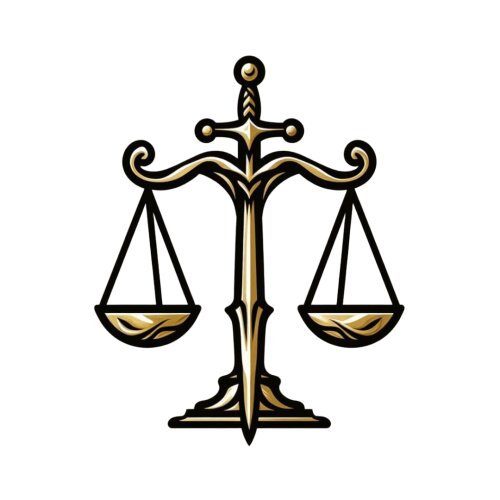Best Sexual Harassment Lawyers in Argentina
Share your needs with us, get contacted by law firms.
Free. Takes 2 min.
Or refine your search by selecting a city:
List of the best lawyers in Argentina
About Sexual Harassment Law in Argentina
Sexual harassment in Argentina is recognized as an infringement of personal dignity and has legal implications under existing national laws. The country has progressively enhanced its legal framework to combat sexual harassment both in the workplace and in educational settings. Significant legislation, like the "Ley de Protección Integral a las Mujeres" (Integral Protection of Women Law), has been established to protect individuals from gender-based violence and harassment. Furthermore, Argentina ratified the International Labour Organization's Convention 190, aiming to eliminate violence and harassment in the workplace.
Why You May Need a Lawyer
Seeking legal advice can be crucial under various circumstances of sexual harassment, including but not limited to:
- If you are an employee facing sexual harassment at work and need guidance on your rights and the procedures to report the incident.
- If you are a victim seeking to file a formal complaint with the authorities or your workplace.
- If you need help navigating the complex legal procedures associated with filing charges and protecting yourself legally.
- If you need legal representation in mediation or court proceedings related to sexual harassment claims.
- If you are unsure of your rights concerning confidentiality and the protection of your identity.
Local Laws Overview
The key aspects of sexual harassment laws in Argentina include the following:
- The Labor Contract Law (Law No. 20.744) prohibits sexual harassment in workplaces and provides for penalties against offenders.
- The Comprehensive Protection Law (Law No. 26.485) addresses violence against women, including harassment, and provides procedures for protection and redress.
- ILO Convention 190, ratified by Argentina, establishes a right to a harassment-free work environment, which brings international standards into the local framework.
- The Penal Code also includes provisions for acts of harassment, with penalties ranging from fines to imprisonment, depending on the severity of the act.
Frequently Asked Questions
What constitutes sexual harassment under Argentine law?
Sexual harassment includes unwelcome behavior of a sexual nature that creates an intimidating, hostile, or humiliating environment, whether in the workplace or any other setting.
How can I report sexual harassment in the workplace?
You can report it to your employer or human resources department. There might also be specific protocols or a dedicated committee to handle such complaints.
What protections are in place for victims reporting harassment?
Victims are protected by confidentiality clauses, anti-retaliation protections, and indemnity against false accusations. Legal mechanisms are in place to ensure their safety and privacy.
Can I pursue a complaint if the harassment occurred outside work premises?
Yes, harassment connected to work activities or that affects work conditions can typically be pursued, even if it occurs off-premises.
Is mediation available as an option for resolving harassment complaints?
Yes, mediation is often encouraged as a first step to resolve disputes before moving to formal litigation.
What evidence is needed to prove sexual harassment?
Documentation, witness testimonies, communications (emails, texts), and any other tangible evidence can support your claim.
Can I sue my harasser personally?
Yes, legal actions can be directed against both individuals and organizations depending on the circumstances of the case.
What if my employer doesn't act on my complaint?
If an employer fails to act, you can escalate the matter to labor tribunals or appeal to government bodies for further action.
Are there time limits for filing a complaint or taking legal action?
Time limits can vary, but it's generally advisable to act promptly. Legal advice should be sought to understand specific deadlines.
Can men also file complaints of sexual harassment?
Yes, while laws recognize women as a primary victim group, anyone, regardless of gender, can file a sexual harassment complaint.
Additional Resources
For those seeking further information or assistance, consider reaching out to:
- INADI (National Institute Against Discrimination, Xenophobia, and Racism) - Provides support for discrimination and harassment issues.
- Ministry of Labor, Employment and Social Security - Offers guidance and resources for workplace harassment cases.
- Office of Gender Policies - Provides resources and support specifically for gender-related harassment issues.
Next Steps
If you need legal assistance related to sexual harassment, consider taking the following steps:
- Document all instances of harassment with as much detail and evidence as possible.
- Consult with a legal professional specializing in sexual harassment to understand your rights and options.
- Report the harassment to your workplace if applicable, following internal procedures, or seek help from relevant authorities.
- Contact government bodies or NGOs for additional support and resources.
- Consider forming or joining support groups for guidance and morale support during proceedings.
Lawzana helps you find the best lawyers and law firms in Argentina through a curated and pre-screened list of qualified legal professionals. Our platform offers rankings and detailed profiles of attorneys and law firms, allowing you to compare based on practice areas, including Sexual Harassment, experience, and client feedback.
Each profile includes a description of the firm's areas of practice, client reviews, team members and partners, year of establishment, spoken languages, office locations, contact information, social media presence, and any published articles or resources. Most firms on our platform speak English and are experienced in both local and international legal matters.
Get a quote from top-rated law firms in Argentina — quickly, securely, and without unnecessary hassle.
Disclaimer:
The information provided on this page is for general informational purposes only and does not constitute legal advice. While we strive to ensure the accuracy and relevance of the content, legal information may change over time, and interpretations of the law can vary. You should always consult with a qualified legal professional for advice specific to your situation.
We disclaim all liability for actions taken or not taken based on the content of this page. If you believe any information is incorrect or outdated, please contact us, and we will review and update it where appropriate.
Browse sexual harassment law firms by city in Argentina
Refine your search by selecting a city.













